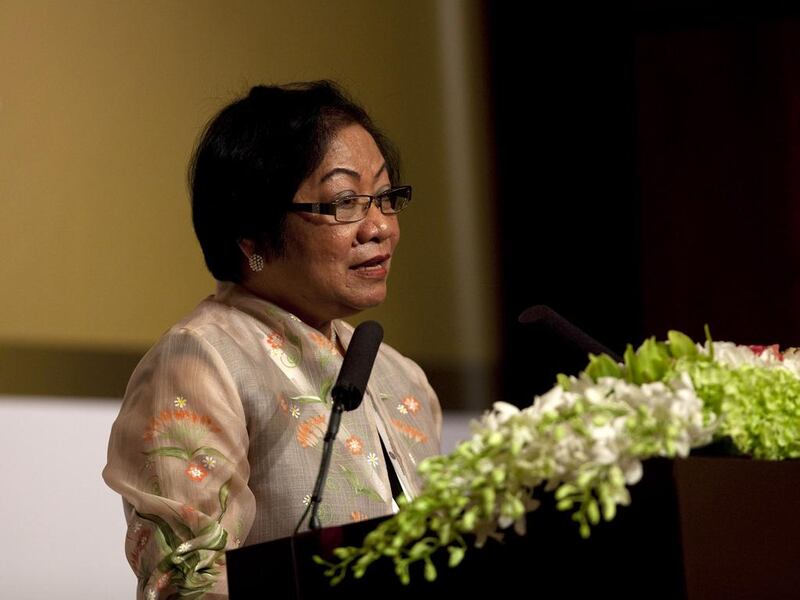ABU DHABI // The Philippines is trying to stop women travelling to the UAE to work as maids after the Ministry of Labour removed the need to have domestic workers' contracts ratified by their embassies.
The Philippine labour secretary, Rosalinda Baldoz, said the government would not process contracts of Filipinos wishing to become household workers in the Emirates.
The country has strict controls and rules to oversee the movement of its expatriate workers. Its Overseas Employment Administration (Poea) will stop processing UAE contracts for maids, nannies, cooks, family drivers and gardeners, most of whom are women.
"I have further directed Poea to advise licensed recruitment agencies to explore markets for household service workers other than the UAE, even as I strongly warn illegal recruiters against deploying household service workers to UAE," Ms Baldoz said.
The Philippines imposes strict requirements for UAE employers.
Ms Baldoz said the move was similar to Poea's actions in 2011 when Saudi Arabia suspended the contract verification of domestic staff after a wage disagreement.
The Philippine overseas labour offices in Dubai stopped verifying contracts in the first week of this month after a new standard contract for domestic staff produced by the Ministry of Interior took effect on June 1.
The Ministry of Labour issued a circular on May 26 instructing recruitment agencies in the UAE to rely on the standard contract, removing the need to have domestic workers' contracts ratified by embassies of their countries of origin, a source said.
The agencies were also instructed not to require or compel employers who wish to hire household workers to deal with embassies when signing contracts, the source said.
"I am concerned that without the requisite verification, household workers who will travel to the UAE will fall vulnerable to human trafficking, which we must avoid at all cost," Ms Baldoz said.
The Philippine missions in Abu Dhabi and Dubai are responsible for verifying documents, including employment contracts that satisfy Philippine requirements.
Verification has been in place under Philippine laws on overseas employment, and it is applied for all countries of destination, including the UAE, Ms Baldoz said.
In December 2006, a reform package from Poea required household staff to be paid a minimum monthly wage of US$400 (Dh1,469), be at least 23 years old and not be required to pay placement fees.
"The $400 minimum wage is a very contentious issue in Abu Dhabi," Angel Borja, the labour attache in Abu Dhabi, said in July last year.
"What we are trying to enforce here is a guiding rate."
Poea said it would work closely with the Bureau of Immigration and the Inter-Agency Council Against Trafficking to ensure those who intended to work in the UAE did not fall victim to human trafficking.
The government agencies will strictly screen Filipinos heading for the UAE on visit visas.
She said she was "confident that the UAE and the Philippines will arrive at a mutually beneficial agreement on the employment of household service workers, similar to what has been concluded between the Philippines and Saudi Arabia".
The countries signed an agreement in May last year to provide more rights and better protect migrant domestic workers.
They agreed on a standard employment contract and a $400 minimum monthly salary was set, as were rest days and paid holidays.
"The UAE has expressed interest to negotiate with the Philippines on this matter and we are glad to do so," Ms Baldoz said.
Recruitment agencies in the Philippines will now have to wait to see how the negotiations will fare, said Emmanuel Geslani, an overseas recruitment expert in Manila.
"The UAE's decision to suspend the verification of contracts has translated to a loss in their business but they can always explore the Saudi and Qatar markets," Mr Geslani said.
rruiz@thenational.ae
Philippines has concerns about trafficking in UAE
The Philippines has stopped processing contracts of its nationals who wish to work as domestic staff in the UAE, its labour secretary says.

More from the national





